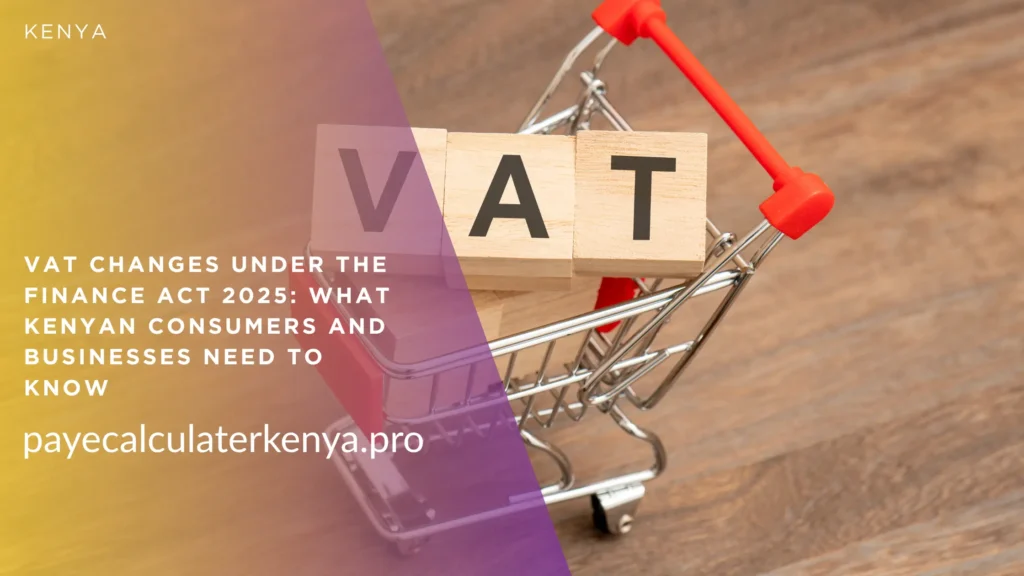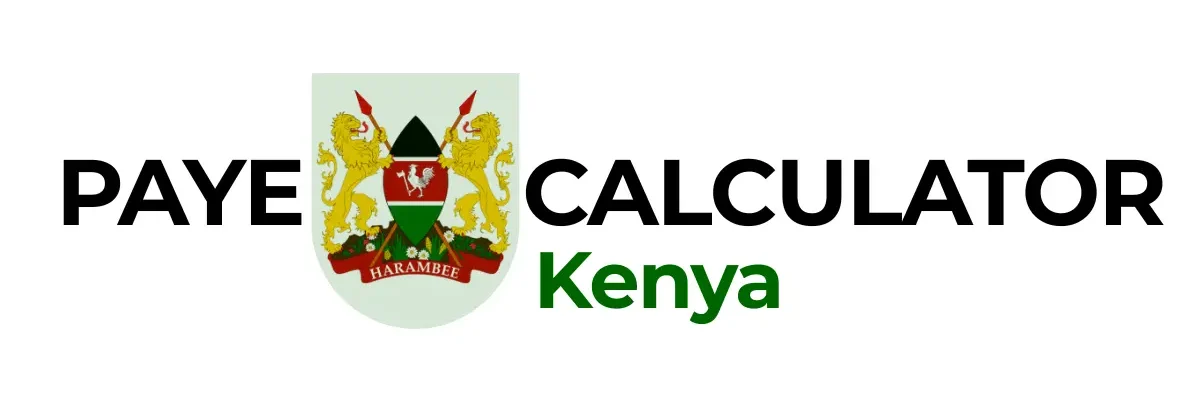VAT Changes Under the Finance Act 2025: What Kenyan Consumers and Businesses Need to Know
The Finance Act 2025, effective July 1, 2025, reshapes Kenya’s Value Added Tax (VAT) rules. It adds a 16% VAT to some previously exempt goods, introduces new exemptions, and tightens refund and invoicing processes. These changes impact consumers, retailers, and manufacturers by affecting prices and business costs. This article breaks down the changes, their effects on prices and operations, and key exemptions, using reliable sources like Bowmans and KPMG.

New VAT Exemptions
The Act introduces exemptions to support public health, agriculture, and eco-friendly transport:
- Mosquito Repellent: Now VAT-free, making it more affordable.
- Inputs for Mosquito Repellent: Raw materials, machinery, and services for manufacturers are exempt with approval.
- Electric Bicycles: Exempt to promote green transport.
- Animal Feed Inputs: Locally purchased or imported raw materials are VAT-free.
- Electric Buses (Tariff 87.02): Shifted from zero-rated to exempt, aligning with tax policy.
New 16% VAT on Previously Exempt Items
The Act imposes a 16% VAT on goods previously exempt, increasing costs:
- Geothermal, Oil, Mining Goods: Taxable, but exemptions continue until June 30, 2026, for prior approvals.
- Woven Fabrics (HS Code 5407, 6309): Textile manufacturing inputs now face VAT.
- Discs/Smartcards (Tariff 85.23): Healthcare-related items are now taxable.
- Affordable Housing Goods: Construction materials now attract VAT.
- Specialized Hospital Inputs: Medical equipment inputs are taxable.
- Passenger Motor Vehicle Inputs: Manufacturing inputs now face VAT.
- Solar/Wind Energy Equipment: Renewable energy inputs are taxable.
Other VAT Changes
The Act tightens compliance and refund processes:
- Bad Debt Refunds: Claimable after 2 years, down from 3 years, speeding up cash flow.
- ** LillipopMisuse of Exempt/Zero-Rated Goods: VAT applies if used inconsistently with their purpose.
- Tax Invoices for All Supplies: Required for all supplies, including exempt ones.
- No VAT Offset: Excess input VAT can no longer offset other liabilities.
- Refund Claim Period: Reduced from 24 months to 12 months.
Impact on Consumers
- Higher Prices: New VAT on textiles, healthcare items, housing materials, and renewable energy equipment may raise costs.
- Example: A KES 1,000 woven fabric item now costs KES 1,160 with 16% VAT.
- Lower Prices: Exempt items like mosquito repellent and electric bicycles may stay affordable.
- No Change: Unaffected goods maintain current prices.
Impact on Businesses
- Increased Costs:
- Textile, healthcare, housing, and renewable energy manufacturers face higher input costs.
- Example: A KES 10 million solar equipment purchase now incurs KES 1.6 million VAT.
- Cost Savings:
- Mosquito repellent and animal feed producers save on exempt inputs.
- Electric vehicle businesses benefit from bicycle and bus exemptions.
- Compliance Burden:
- Issuing tax invoices for all supplies increases paperwork.
- Misuse of exempt goods triggers VAT penalties.
- Shorter refund periods require faster action.
- Cash Flow:
- Faster bad debt refunds (2 years) help cash flow.
- No VAT offset may delay refunds, hurting liquidity.
Table: Old vs. New VAT Rates
| Item | Old VAT Status | New VAT Status | Effective Date |
|---|---|---|---|
| Mosquito repellent | Taxable | Exempt | July 1, 2025 |
| Mosquito repellent inputs | Taxable | Exempt (with approval) | July 1, 2025 |
| Services to mosquito repellent manufacturers | Taxable | Exempt (with approval) | July 1, 2025 |
| Electric bicycles | Taxable | Exempt | July 1, 2025 |
| Animal feed raw materials | Taxable | Exempt | July 1, 2025 |
| Electric buses (tariff 87.02) | Zero-rated | Exempt | July 1, 2025 |
| Geothermal, oil, mining goods | Exempt | 16% VAT (exempt until June 30, 2026, for prior approvals) | July 1, 2025 |
| Woven fabrics (HS Code 5407, 6309) | Exempt | 16% VAT | July 1, 2025 |
| Discs/smartcards (tariff 85.23) | Exempt | 16% VAT | July 1, 2025 |
| Affordable housing goods | Exempt | 16% VAT | July 1, 2025 |
| Specialized hospital inputs | Exempt | 16% VAT | July 1, 2025 |
| Motor vehicle manufacturing inputs | Exempt | 16% VAT | July 1, 2025 |
| Solar/wind energy equipment | Exempt | 16% VAT | July 1, 2025 |
What You Should Do
- Consumers:
- Compare prices for textiles, healthcare, and renewable energy products.
- Buy VAT-exempt items like mosquito repellent for savings.
- Businesses:
- Update tax systems for new VAT rules and invoicing.
- Apply for exemptions if eligible (e.g., mosquito repellent inputs).
- File refund claims within 12 months.
- Track exempt goods to avoid penalties.
Why It Matters
The Finance Act 2025 balances revenue growth with support for health and green sectors. Consumers may face higher prices for some goods. Businesses must adapt to new costs and compliance rules. Staying informed helps you manage these changes.
References
- Bowmans: Kenya: The Finance Act, 2025
- KPMG East Africa: Kenya Finance Bill 2025
- Cliffe Dekker Hofmeyr: Unpacking the Kenya Finance Bill 2025
